Watch: I love farming life on Cape Clear... but I miss access to cinemas, theatres and the odd takeaway
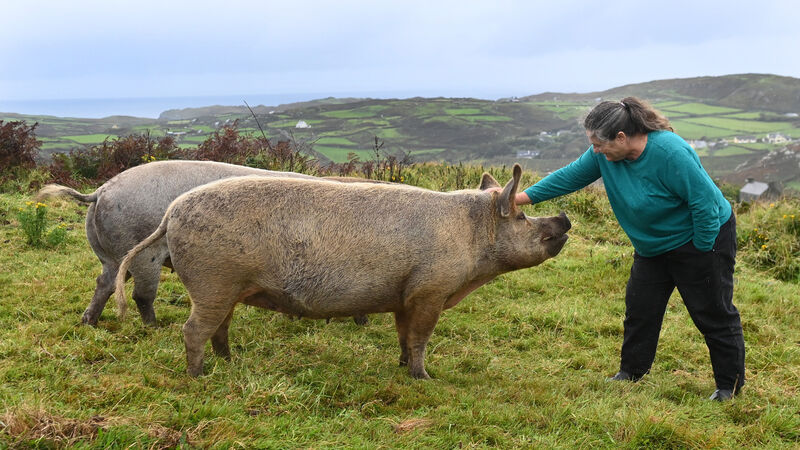
Fiona Mac Laughlan with her pigs on Cape Clear. Pictures and video by; Eddie O'Hare
IN 1965, a glamorous young couple, Duncan and Zoë Mac Laughlan, and their three children took the ferry to the island of Cape Clear which lies eight miles off the coast of Baltimore in West Cork.
An Irish-speaking island, it looks like a gigantic boulder in the ocean, and is three miles long by one mile wide, and as far as you can go south off the mainland.
Only the remote Fastnet Rock lies a further 6.5 km south west, known as ‘ Ireland’s teardrop’ as it was the last sighting of Ireland that emigrants would see as they passed by on the ships heading to America. Many a tear was shed as they embarked upon their perilous journey across the Atlantic Ocean.
The ferry journey to Cape Clear takes around 45 minutes, and as the traveller gets further out to sea the elements make themselves known.
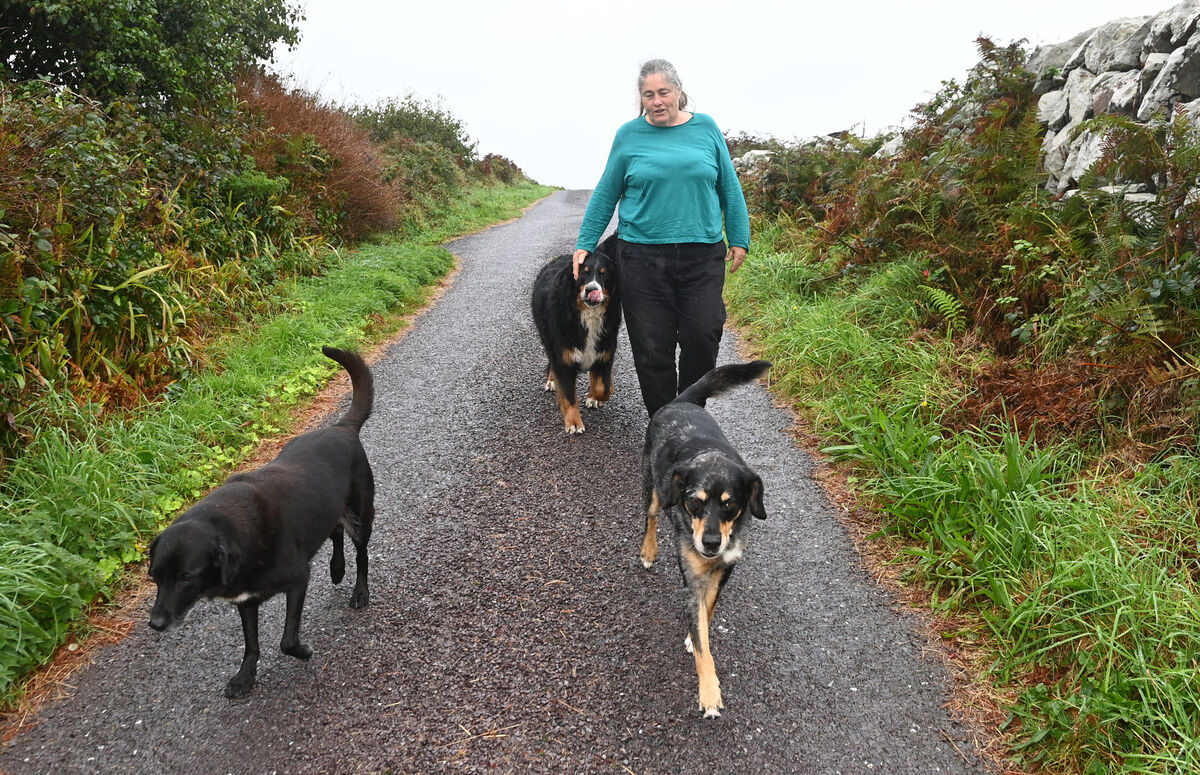
Turquoise and emerald waves swell, frisky dolphins chase alongside the boat, dusky seals loll about on the rocks of Roaringwater bay, and cool breezes can suddenly turn into brisk winds, making for choppy seas.
Zoë’s hat had blown off in the wind, on that, her first ferry crossing to Cape, and she was not best pleased.
When she landed on the island, she tottered off the boat in her high heels clutching a bag full of her remaining hats on one arm and her toddler Fiona on her hip, and shepherding her other two children. She made her way valiantly through the mud with her husband by her side in the direction of her new island home.
Zoë, originally from New Zealand, had fallen in love and married the dashing young pilot Duncan Mac Laughlan whose family hailed from West Cork. He had initially headed to sea as a young man of 18, and by this time was working as a pilot in Singapore.
In those days, pilots on an expatriate contract who worked in the Tropics were advised to go to a more temperate climate for a couple of months a year to recharge their batteries, and this prompted Duncan to consider buying a home back in Ireland.
At this stage too, his mother Iris, another adventurous woman who had been studying medicine in Trinity College Dublin during the 1916 Rising, and had gone to live in South Africa, was also looking to relocate back to Cork, so it made sense to look for a home which they could all use.
And so it came to pass that the Mac Laughlan family moved to Cape Clear, and Fiona, who first landed on the island perched on her mother’s hip, continues to live in the same house where her family took up residence back in 1965.
“When my grandmother and parents were first thinking about purchasing a house back in Ireland, they were hoping that it would have a garden and a view of the sea,” said Fiona.
My grandmother had been doing some research and had picked out a number of places to view, and a house on Cape Clear was amongst the properties on the list for their consideration.
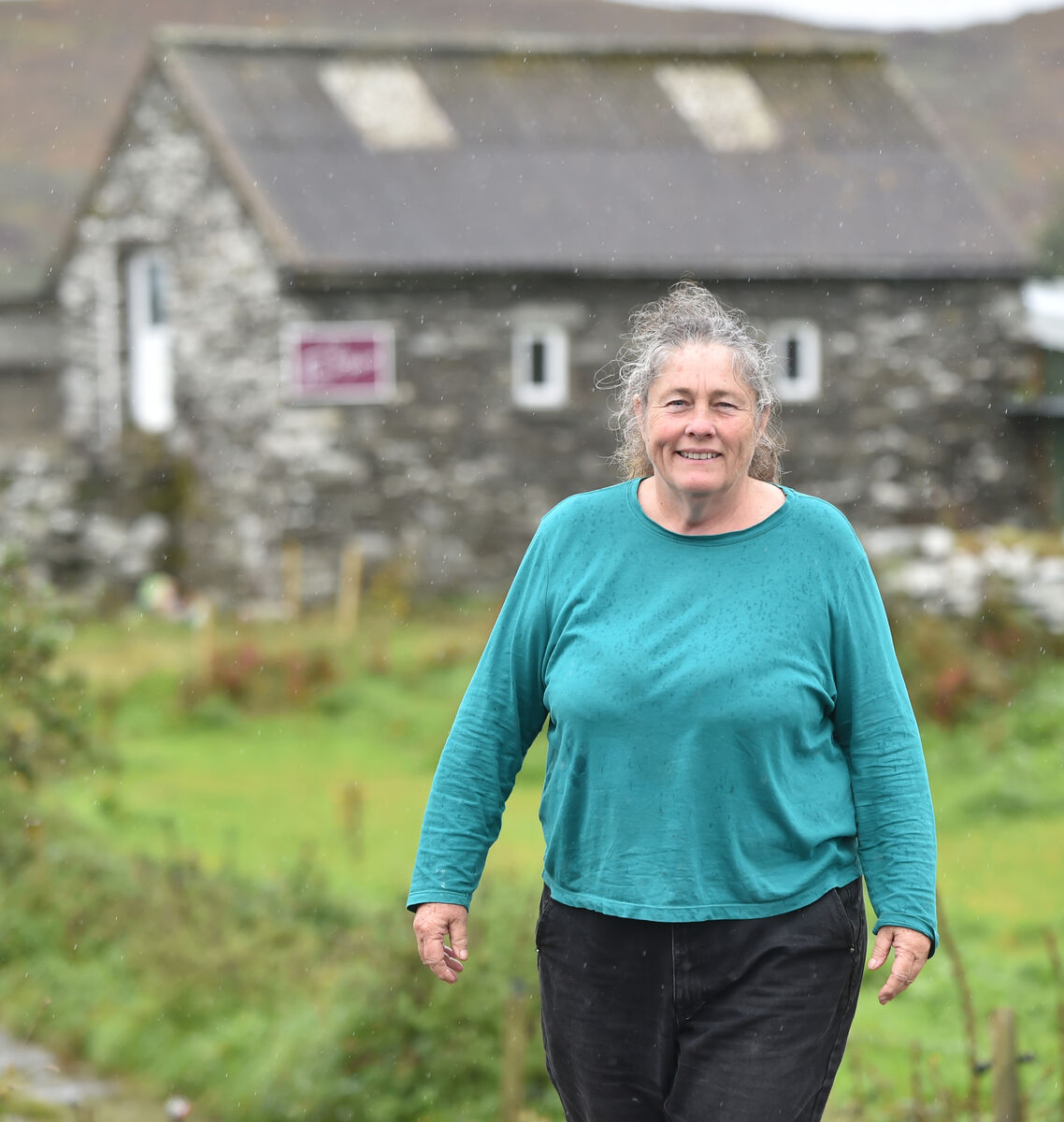
“My parents, who were back from Singapore, had based themselves in Kinsale, and my father was charged with the task of going around to initially view the properties scattered around various parts of West Cork.
“They had purchased a car and it was decided to leave it with my mother as my father did not want her stranded with three children and no transport while he was off investigating potential houses.
“So he set off on his viewing mission in the direction of Baltimore, but got onto the wrong bus and ended up in Drimoleague. He started hitching and was picked up by the dispenser man who was going around the pubs of West Cork to check the beer taps.
“Of course, this was all before the laws around drink-driving were in force, and in those days it was the custom that the dispenser man would have a free pint in every pub, so naturally my father who was in his company was also included, and it would have been impolite to refuse the offer of the hospitality. Then, of course, he bought a round back and the dispenser man bought another, and the drink and the conversation flowed.
“Many hours and stops later they eventually made it to Baltimore, and my father almost missed the boat to Cape Clear, but somehow, miraculously, in the days before the mobile phone, word had got out that he was on his way, so they held the boat for him and he managed to get on, even though he was a bit worse for wear after his escapades though the countryside with the dispenser man.
“He duly arrived in one piece on the island, where he alighted on the late Paddy Burke’s pub in a very happy and relaxed state and the session continued on.” said Fiona.
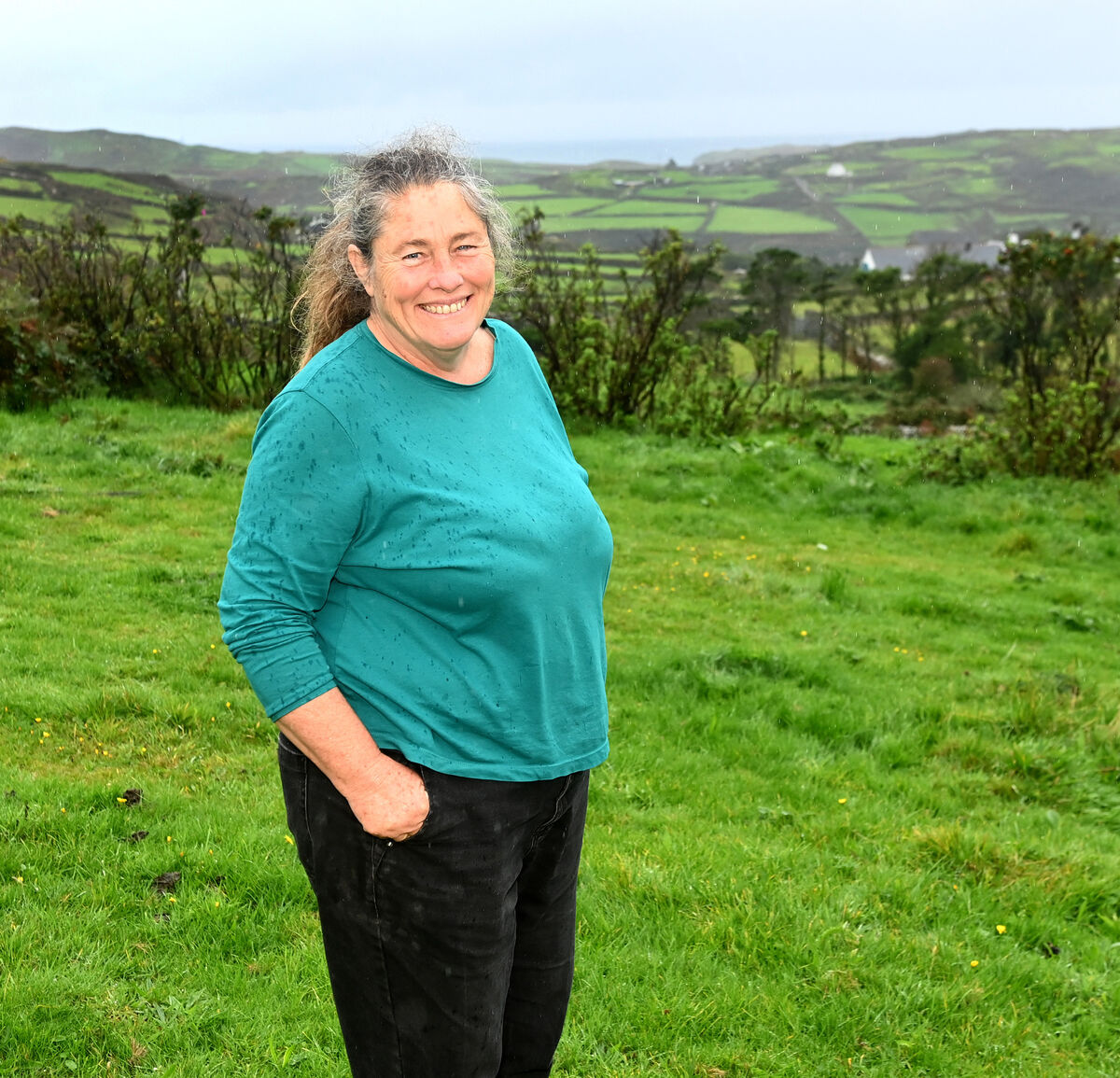
The next morning, Duncan was still a bit under the weather when he found himself in the most stunning of backdrops close to South Harbour, surrounded by a patchwork quilt of small fields with drystone walls, and a view of the Atlantic Ocean stretching out majestically before him.
He got chatting with a local woman, explaining to her the purpose of his visit to the island. She pointed up towards a part of the island known as The Glen and told him there was a house there for sale.
When Duncan got back to Kinsale and told Zoë about the house, naturally enough she wanted to know what it was like - but in fact Duncan had not set foot inside the door before he bought it!
“There was no electricity or running water, and soon going to the well with buckets was starting to weigh heavily on my mother in more ways than one, whereupon she declared to my father that if there was no running water within 24 hours, she was leaving the island without him, and the children could stay under his care.
Within 24 hours my father had bought a pipe, bought a tap, found a spring and attempted to get the water flowing, but his first few attempts were unsuccessful and the 24 hours were ticking by.
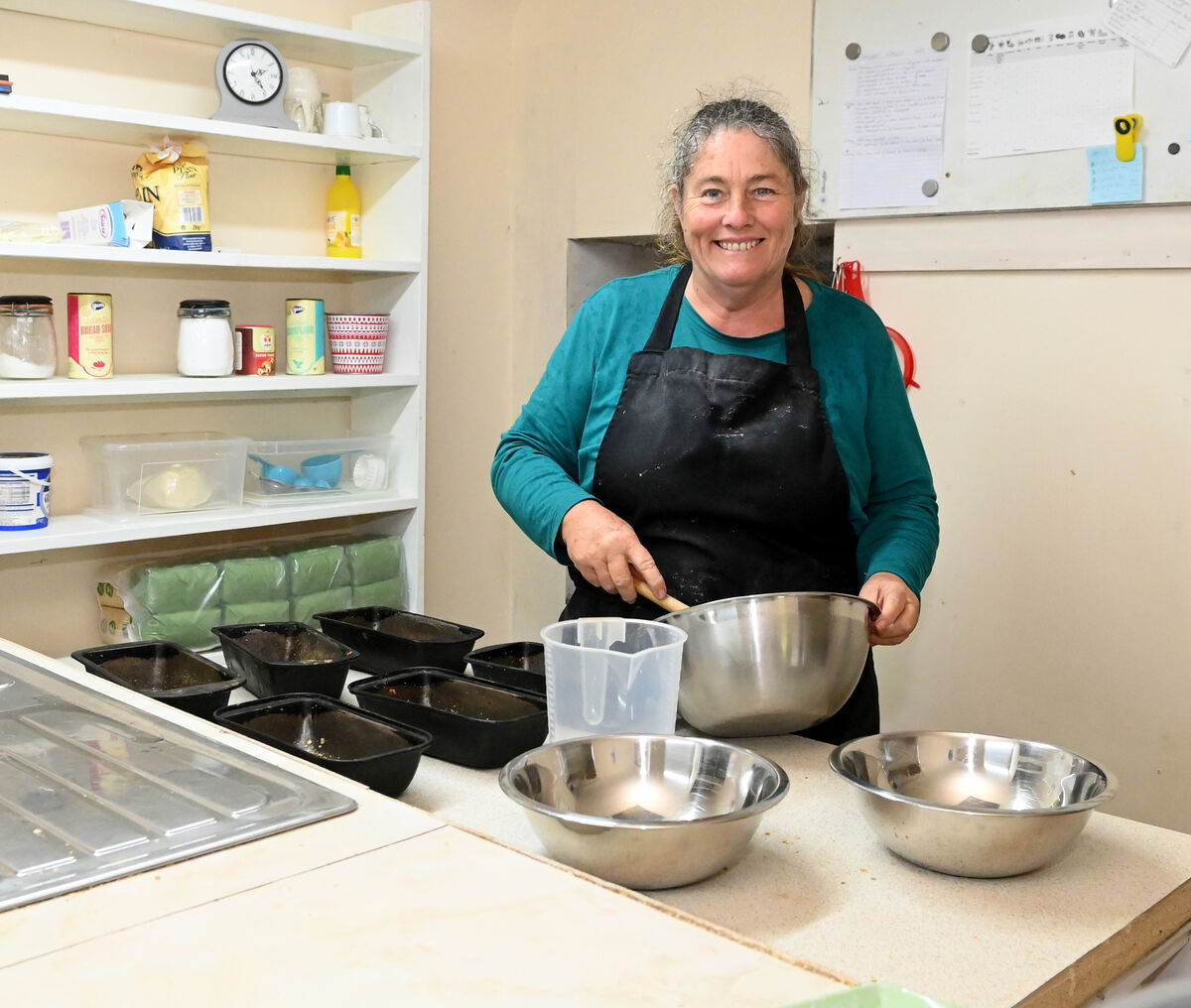
“He eventually decided there was nothing else to do but to try and suck the pipe, and on his third attempt the water suddenly came gushing forth, almost through his eyes, and that was the start of running water in the house, and of course my mother stayed,” laughed Fiona.
Since those days of no running water nor electricity in many island homes, Fiona has seen many changes to island life.
Running water, electricity and telephones were gradually installed in the homesteads, and right up to the present era of the internet, each change that came has heralded in a new level of comfort and vastly improved the quality of life for the island population.
Being connected to the internet means that there is greater scope to run a business and stay connected to the rest of the world, and while technology has enormously enriched their lives, Fiona still recalls with fondness the older way of doing things in the days before mobile phones were in everybody’s pockets.
“ If I was going to a neighbour’s house and expecting to be there for any length of time, then I would call Paddy in the Post Office to let him know where I was going to be.
“Any phone calls for me would then be put through to whichever house I was in - it was like having your own personal answering service.”
Fiona’s childhood was spent largely in Singapore, but each year without fail she went to Cape Clear to visit her grandmother, and then in 1982 her dad retired from his career as a pilot and her parents went to live full time on the island.
Dad had hoped to go back to helicopter flying, which he had done before, but that didn’t pan out so he went farming instead. He reckoned he never worked so hard in his life as he did when he retired.
Meanwhile, Fiona obtained a Masters degree in Development Work in UCD and spent time travelling around the world, teaching English in Cambodia, Poland, Portugal and Australia, with regular visits to her parents on Cape Clear.
“Then, in 2000, I was visiting and still thinking about going back to do some volunteering work in Cambodia when I realised that dad still needed more help on the farm, so that’s when I decided to stay.”
Sadly, Fiona’s parents have both since passed on, and she is now the custodian of the farm where she keeps native Irish breeds of pigs, ponies and cows.
Farming life on the island has challenges which are different to those on the mainland. If you want cattle to be transported or sent out to be sold on the mainland, for example, it involves getting them onto a trailer and transported across on the ferry.
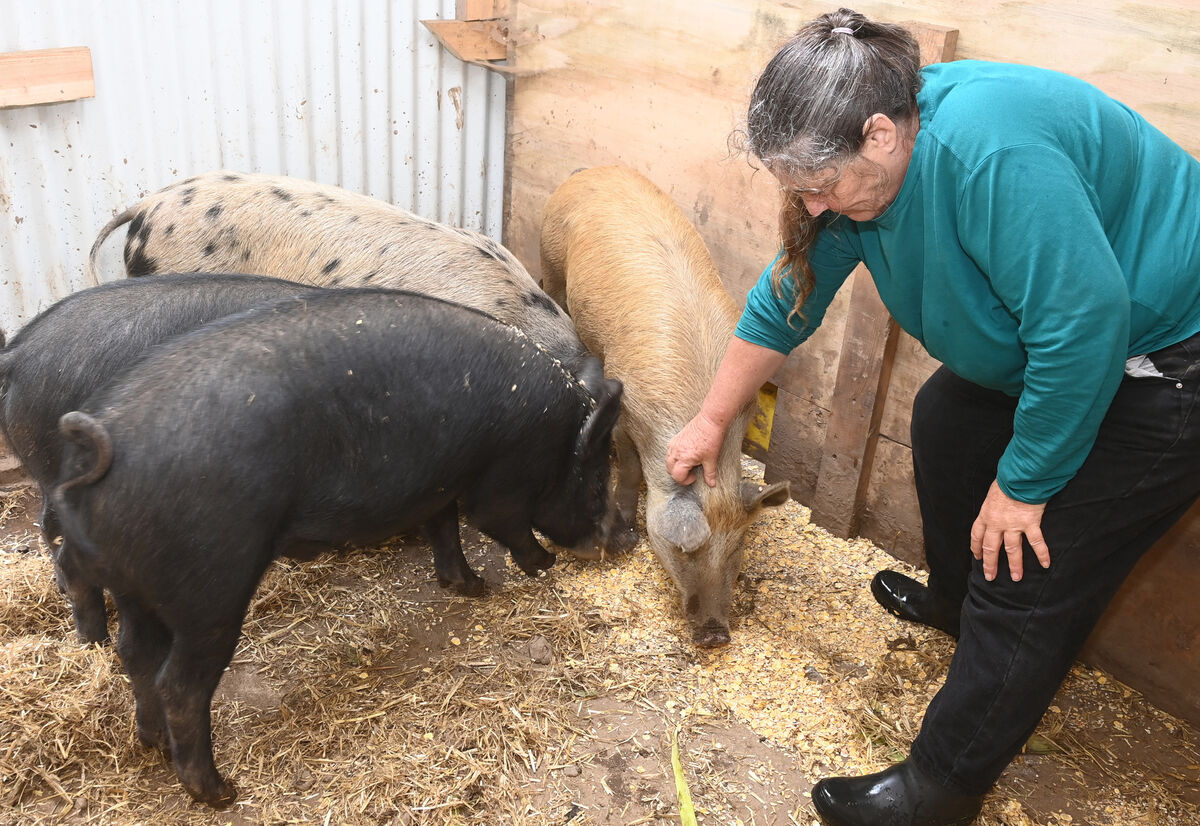
The vet only visits twice a year, but if there is a problem you can discuss the situation on the phone, and these days technology is also helping diagnosis.
“The local vets in West Cork are really excellent. You can call them up and explain your concerns, but thankfully most of the animals reared on the island tend to be pretty healthy,” said Fiona.
“Of course, there are occasional issues and being online is great for veterinary consultations if there is a need to check something out, for example these days you can take photo and send it online.
The ferry is the lifeline to the island and people phone over their shopping list to Field’s supermarket in Skibbereen, and their shopping gets delivered to the pier in Baltimore where it is loaded onto the ferry.
In times gone by, people used to have their own stock of food, they used milk from their own cows or bought it from a neighbour, they ate the vegetables from their own gardens, and kept a store cupboard of dried and canned foods.
“By and large, people were pretty self-sufficient. Keeping an eye on the weather remains an all important activity as you never know when it might take a turn and the boat won’t be able to make a run to the mainland, so keeping rations for the days when you might be weather bound is still part of life here.
“I love the island and the only thing I sometimes miss about the mainland is access to cinemas, theatres and the odd takeaway meal.
“Coming from Singapore meant that we would come straight down to Cape, so Ireland and home to me means Cape Clear.
“My favourite thing about the island is the community. We are far from perfect, or even united, but people will always roll out to help in an emergency.
“Cape is treated as a ship at sea by the emergency services, so I guess there is a sense that we are all kind of a crew on the same boat.
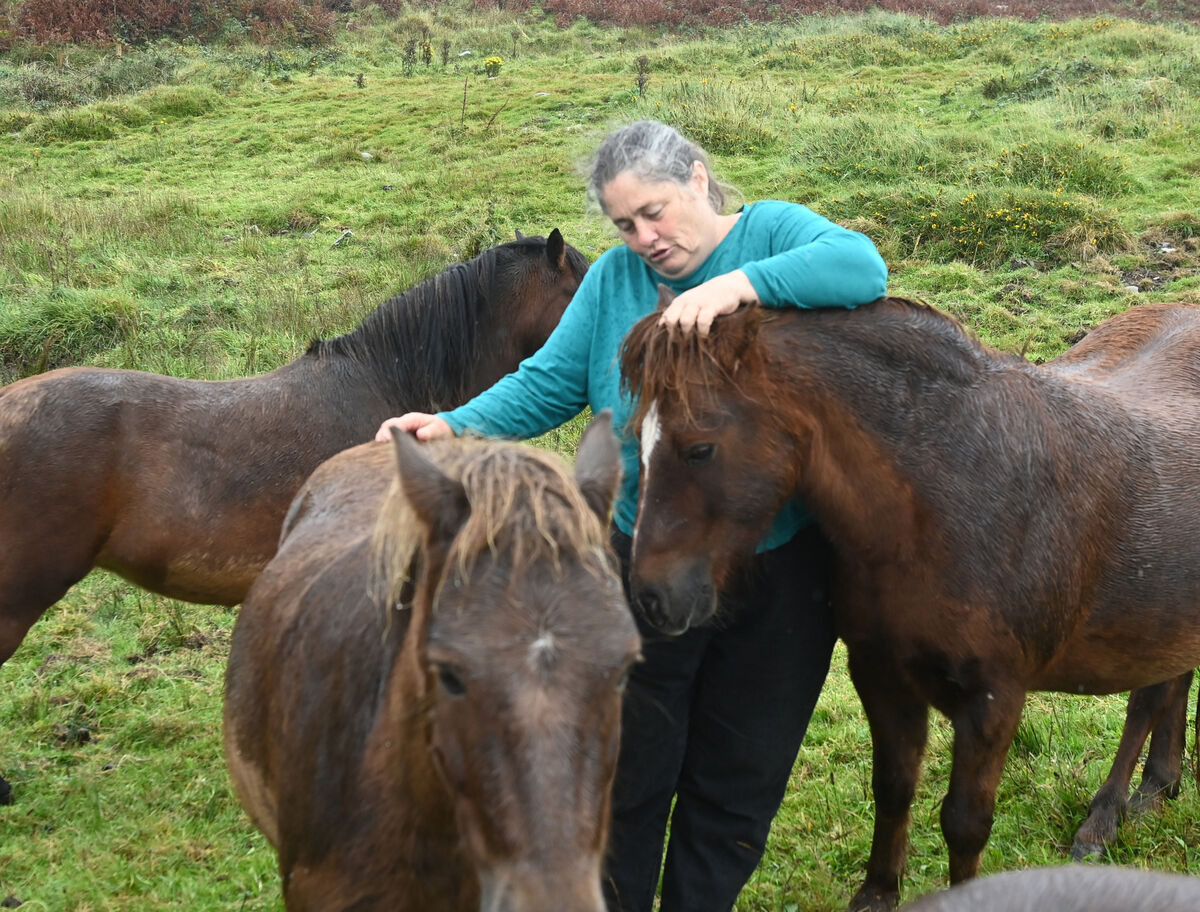
“Like all Irish islands, we are suffering badly from depopulation and a massive housing crisis, just like in the rest of the country.
“On the mainland, you can hunt for accommodation a few more miles down the road, even though it’s getting more and more difficult, but that is simply not possible at all on an island.
“My hope is that we can solve our housing issues and be in a position to welcome the families who have already expressed an interest in moving to Cape, but can’t because there is nowhere for them to live.”
Next week in the series: Aisling Meath catches up with Amm Mc Cormack who lives on Heir island, situated between Sherkin Island and the West and East Skeam islands.
Amm has a son Finn who has to travel to the mainland every day to attend school.
More in this section
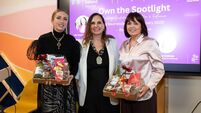
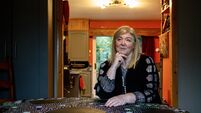
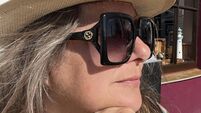




 App?
App?


